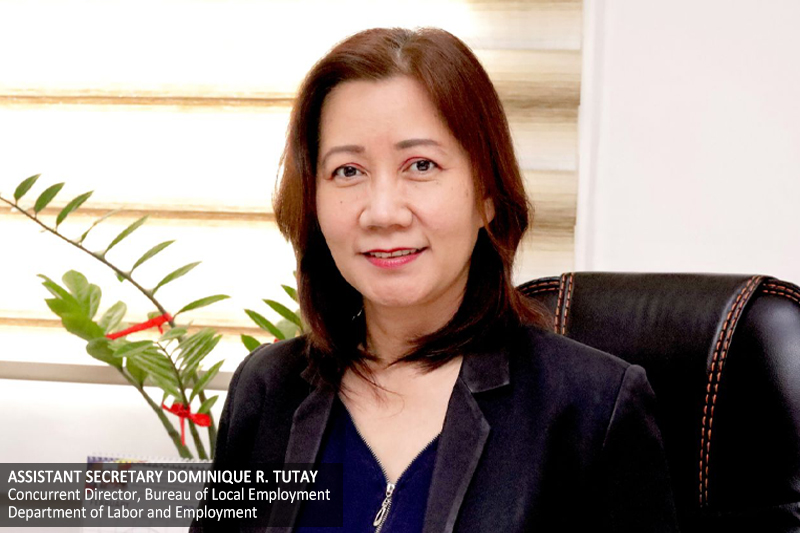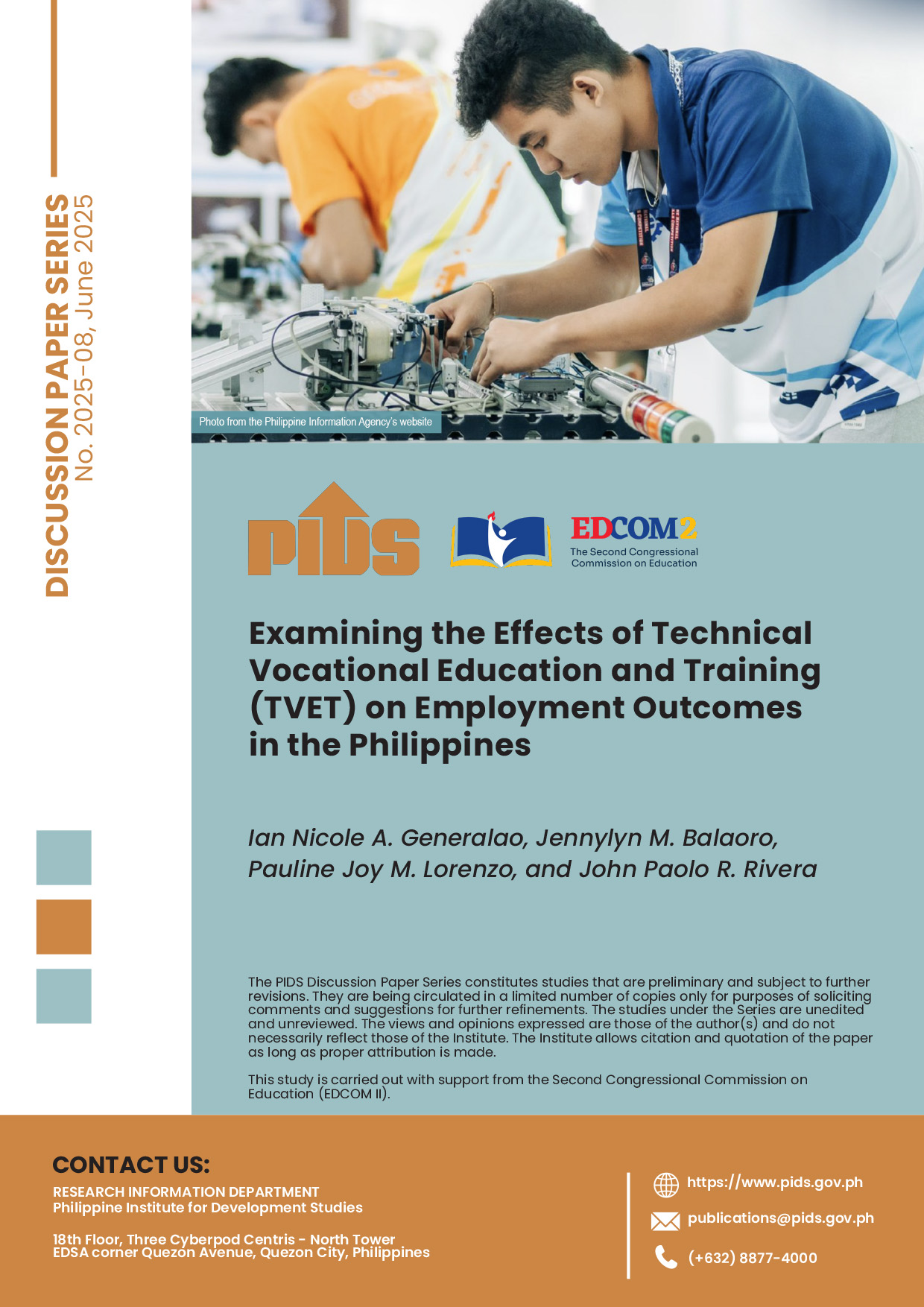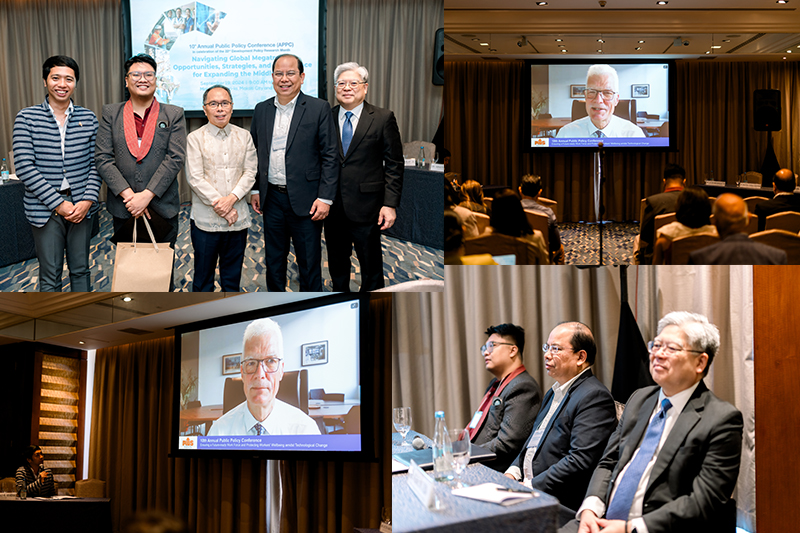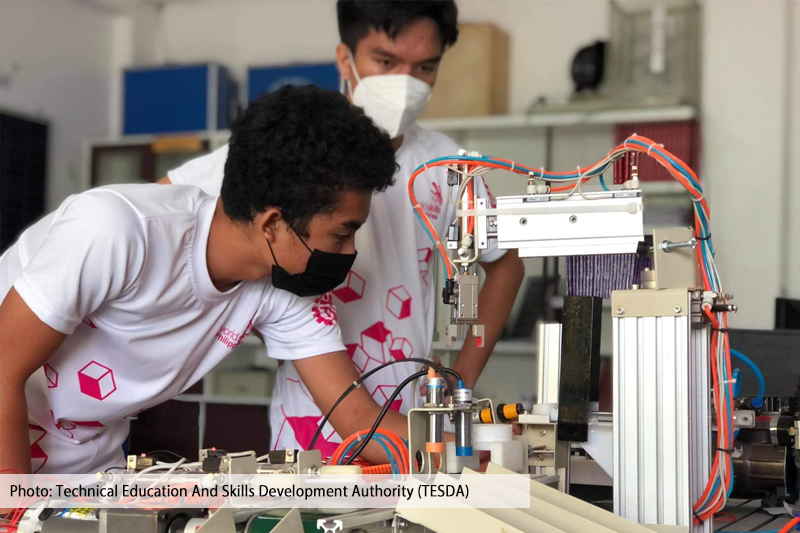
Young workers were among those hit hardest by the COVID-19 pandemic, according to a Department of Labor and Employment (DOLE) official.
Assistant Secretary Dominique R. Tutay revealed that youth employment soared to 21.5 percent or about 1.5 million unemployed young workers due to the imposition of lockdowns this year.
Speaking at the virtual kick-off forum of the 19th Development Policy Research Month last September, Tutay said that one of the biggest hurdles was implementing DOLE’s youth employability programs when those below 21 years old were not allowed to go outside their homes. She added that some of DOLE’s programs have been scaled down and suspended.
Nevertheless, the department digitized its programs so that more youth could benefit from them. “We have also used the lockdown period in updating our modules and career information pamphlets [intended] for career advocacy and employment coaching,” she said.
Other government programs were also implemented to cushion the impacts of the pandemic on affected workers. These include the Tulong Panghanapbuhay sa Ating Disadvantaged/Displaced Workers or TUPAD, COVID-19 Adjustment Measures Program (CAMP) for the formal sector, and DOLE’s AKAP or Abot Kamay ang Pagtulong.
Moreover, financial assistance and emergency employment were provided to more than four million workers in the formal sector, those in the informal sector, and overseas Filipino workers.
Tutay said that while government measures have been in place as the economy gradually opens, “more push and better coordination [is required] so that jobs, livelihood and training opportunities reach the unemployed, new entrants, and re-entrants to the labor market.”
Among the platforms made available to help job seekers include virtual job fairs, online career fairs in partnership with various industries, and the use of social media, presence of job boards like PhilJobNet, Trabaho, Negosyo at Kabuhayan or TNK webpage, and the traditional referral and placement services of the Public Employment Service Offices nationwide.
DOLE also developed and institutionalized the National Employment Recovery Strategy (NERS).
“While the health sector is nursing the health of the people, the NERS will look after employment and the economy. It takes cognizance of the ILO's Decent Work framework to stimulate the economy and employment, support enterprises, jobs, and income, and protect our workers. It also recognizes the value of social dialogue to encourage innovative solutions for our recovery process,” Tutay explained.
She added that business and workers are at the core of the NERS operational framework, which is aimed at “restarting economic activities, restoring business confidence, upgrading and retooling the workforce, and facilitating the labor market access in an enabling environment supported by good governance and infrastructure”.
Tutay emphasized that DOLE puts a premium on occupational safety and health in the workplace and reiterated the agency’s call to all workers and businesses to continue the strict implementation of minimum public health standards.
Lastly, she urged all workers and priority groups to get vaccinated and help minimize social and economic disruptions caused by the COVID-19 pandemic. “For us to thrive in the new normal, we need to evolve and adapt to the fast-transforming world of work. We encourage job seekers and workers to upskill and reskill and prepare themselves as we wait for the economy to bounce back,” she concluded. ###
You may watch the webinar on these links https://fb.watch/7MynUvh2a9/ or https://youtu.be/N4Jc3Jcpj54.
Assistant Secretary Dominique R. Tutay revealed that youth employment soared to 21.5 percent or about 1.5 million unemployed young workers due to the imposition of lockdowns this year.
Speaking at the virtual kick-off forum of the 19th Development Policy Research Month last September, Tutay said that one of the biggest hurdles was implementing DOLE’s youth employability programs when those below 21 years old were not allowed to go outside their homes. She added that some of DOLE’s programs have been scaled down and suspended.
Nevertheless, the department digitized its programs so that more youth could benefit from them. “We have also used the lockdown period in updating our modules and career information pamphlets [intended] for career advocacy and employment coaching,” she said.
Other government programs were also implemented to cushion the impacts of the pandemic on affected workers. These include the Tulong Panghanapbuhay sa Ating Disadvantaged/Displaced Workers or TUPAD, COVID-19 Adjustment Measures Program (CAMP) for the formal sector, and DOLE’s AKAP or Abot Kamay ang Pagtulong.
Moreover, financial assistance and emergency employment were provided to more than four million workers in the formal sector, those in the informal sector, and overseas Filipino workers.
Tutay said that while government measures have been in place as the economy gradually opens, “more push and better coordination [is required] so that jobs, livelihood and training opportunities reach the unemployed, new entrants, and re-entrants to the labor market.”
Among the platforms made available to help job seekers include virtual job fairs, online career fairs in partnership with various industries, and the use of social media, presence of job boards like PhilJobNet, Trabaho, Negosyo at Kabuhayan or TNK webpage, and the traditional referral and placement services of the Public Employment Service Offices nationwide.
DOLE also developed and institutionalized the National Employment Recovery Strategy (NERS).
“While the health sector is nursing the health of the people, the NERS will look after employment and the economy. It takes cognizance of the ILO's Decent Work framework to stimulate the economy and employment, support enterprises, jobs, and income, and protect our workers. It also recognizes the value of social dialogue to encourage innovative solutions for our recovery process,” Tutay explained.
She added that business and workers are at the core of the NERS operational framework, which is aimed at “restarting economic activities, restoring business confidence, upgrading and retooling the workforce, and facilitating the labor market access in an enabling environment supported by good governance and infrastructure”.
Tutay emphasized that DOLE puts a premium on occupational safety and health in the workplace and reiterated the agency’s call to all workers and businesses to continue the strict implementation of minimum public health standards.
Lastly, she urged all workers and priority groups to get vaccinated and help minimize social and economic disruptions caused by the COVID-19 pandemic. “For us to thrive in the new normal, we need to evolve and adapt to the fast-transforming world of work. We encourage job seekers and workers to upskill and reskill and prepare themselves as we wait for the economy to bounce back,” she concluded. ###
You may watch the webinar on these links https://fb.watch/7MynUvh2a9/ or https://youtu.be/N4Jc3Jcpj54.












